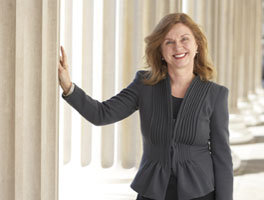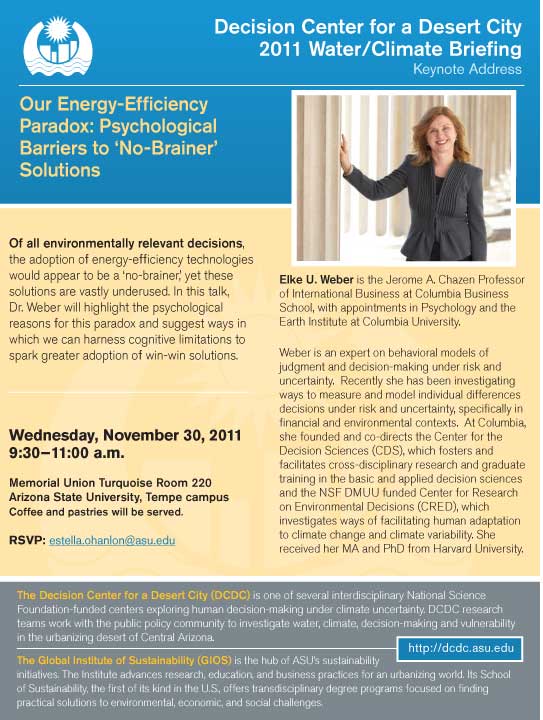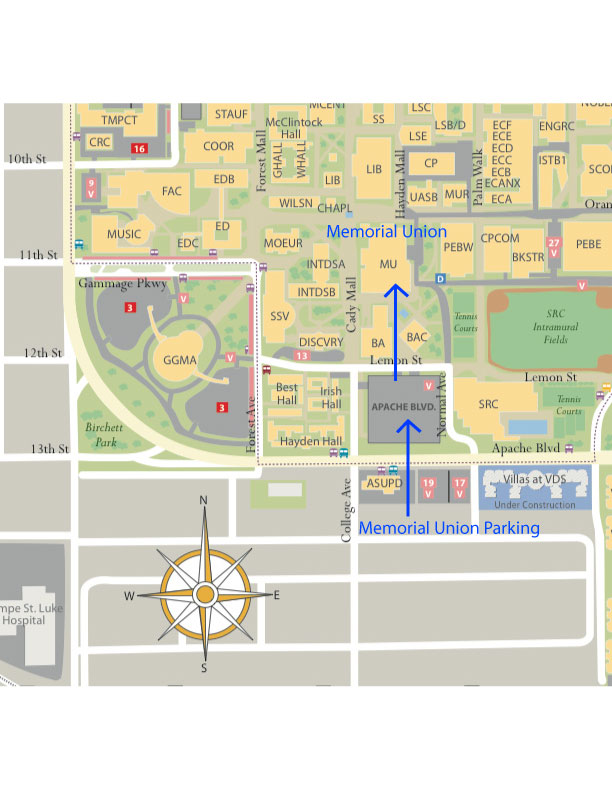Our Energy-Efficiency Paradox: Psychological Barriers to ‘No-Brainer’ Solutions

Elke U. Weber, Keynote Speaker
Jerome A. Chazen Professor of International Business
Founder and Co-director, Center for the Decision Sciences (CDS) and the Center for Research on Environmental Decisions (CRED)
Columbia University
November 30, 2011 | 9:30-11:00am | ASU’s Memorial Union Turquoise Room 220
Please RSVP: estella.ohanlon@asu.edu
Talk Abstract
Of all environmentally-relevant decisions, the adoption of energy-efficiency technologies would appear to be a ‘no-brainer,’ yet these solutions are vastly underused. In this talk, Dr. Weber will highlight the psychological reasons for this paradox and suggest ways in which we can harness cognitive limitations to spark greater adoption of win-win solutions.
About Elke Weber
 via The Earth Institute. Elke Weber has made it her life’s work to understand why and how people make the decisions they make. Not a simple task. Take, for example, smoking cigarettes. Doctors’ warnings of the deadly consequences of becoming addicted to cigarettes have been publicized for nearly 50 years now, but this hasn’t stopped millions of people from taking up the habit since. Irrational? Many would argue so. And what about other, less direct forms of unhealthy behavior that seem irrational? A perfect example today would be the continuation of practices known to cause catastrophic damage to our planet’s environment, and by extension, to ourselves.
via The Earth Institute. Elke Weber has made it her life’s work to understand why and how people make the decisions they make. Not a simple task. Take, for example, smoking cigarettes. Doctors’ warnings of the deadly consequences of becoming addicted to cigarettes have been publicized for nearly 50 years now, but this hasn’t stopped millions of people from taking up the habit since. Irrational? Many would argue so. And what about other, less direct forms of unhealthy behavior that seem irrational? A perfect example today would be the continuation of practices known to cause catastrophic damage to our planet’s environment, and by extension, to ourselves.
Working at the intersection of psychology and economics, Weber is an expert on behavioral models of judgment and decision making under risk and uncertainty. Recently, she has been investigating psychologically appropriate ways to measure and model individual and cultural differences in risk taking, specifically in risky financial situations and environmental issues. She describes her research as follows:
“I try to gain an understanding and appreciation of decision making at a broad range of levels of analysis, which is not easy, given that each level requires different theories, methods and tools. So at the micro end of the continuum, I study how basic psychological processes like attention, emotion and memory (and their representation in the brain) influence preference and choice. At the macro end of the continuum, I think about how policy makers may want to present policy initiatives to the public to make them maximally effective. This range of topics and methods is challenging, but at least in my mind the different levels of analysis inform and complement each other.”
Currently, Weber is focusing the majority of her time on two very different, but crucial issues: “… environmental decisions, in particular responses to climate change and climate variability, and financial decisions, for example pension savings.” Like all of her research topics, even these seemingly unrelated issues are linked in that both involve choices with consequences that are delayed in time and are often highly uncertain.
Read The New York Times article featuring Elke Weber, Why Isn’t the Brain Green? by Jon Gertner. Decision scientists are trying to figure out why it’s so hard for us to get into a green mind-set. Their answers may be more crucial than any technological advance in combating environmental challenges.
Biography
Elke U. Weber is the Jerome A. Chazen Professor of International Business at Columbia Business School, with appointments also in Psychology and the Earth Institute at Columbia University. Her MA and PhD are from Harvard University. Previous academic positions include the University of Chicago and visiting appointments in Germany, UK, Denmark, Switzerland, as well as fellowships at the Center for Advanced Studies in the Behavioral Sciences at Stanford, the Wissenschaftskolleg in Berlin, and the Russell Sage Foundation in New York.
Weber is an expert on behavioral models of judgment and decision-making under risk and uncertainty. Recently she has been investigating psychologically and neurally plausible ways to measure and model individual differences decisions under risk and uncertainty, specifically in financial and environmental contexts.
Weber is past president of the Society for Mathematical Psychology, the Society for Judgment and Decision Making, and the Society for Neuroeconomics. She has served on advisory committees of the National Academy of Sciences in Washington, DC, related to human dimensions in global change, edited two decision science journals and serves on the editorial boards of eight psychology and social science journals. At Columbia, she founded and co-directs the Center for the Decision Sciences (CDS), which fosters and facilitates cross-disciplinary research and graduate training in the basic and applied decision sciences and the NSF DMUU funded Center for Research on Environmental Decisions (CRED), which investigates ways of facilitating human adaptation to climate change and climate variability. She will serve as a Lead Author in Working Group III (on mitigation) for the 5th Assessment Report of the Intergovernmental Panel on Climate Change (IPCC).
Parking
The most convenient parking for this DCDC Water/Climate Briefing at ASU’s Memorial Union can be found at the Apache Parking structure at the intersection of Apache Blvd and College in Tempe. Parking rates are $2/hour with a maximum of $8.00.


